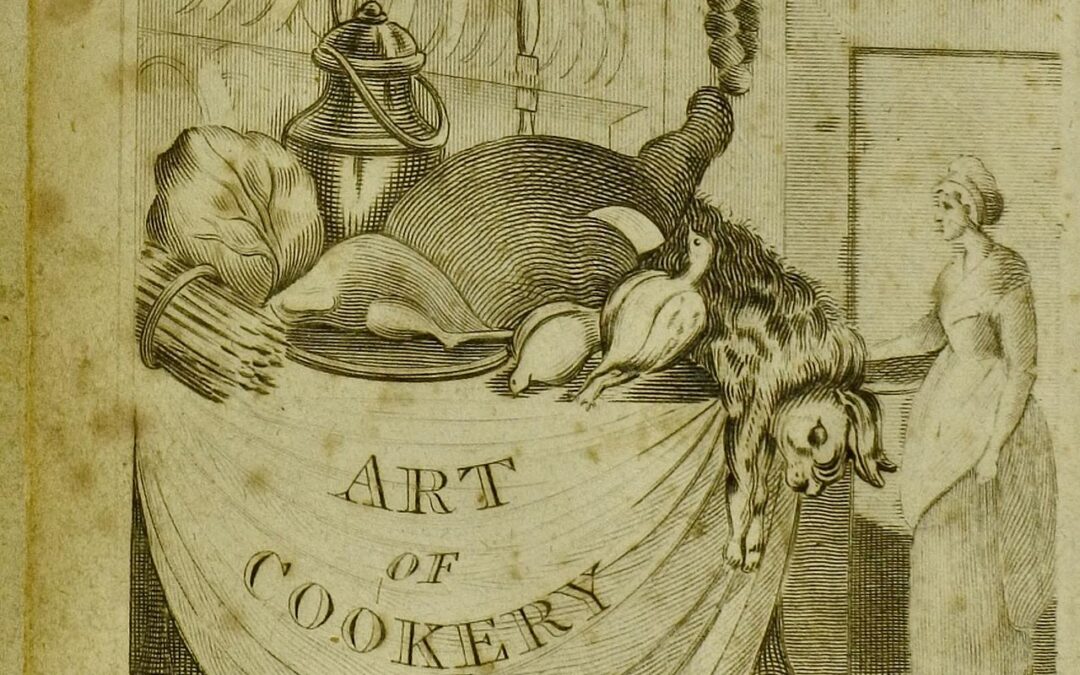 Fricassee is picnic food when dining indoors. It’s mentioned in Samuel Foote’s The Nabob (1772) and Mary Belson Elliott’s The Mice and Their Pic Nic (1809). Had Elliott needed a recipe, she might have found it in Mrs. Rundell’s A New System of...
Fricassee is picnic food when dining indoors. It’s mentioned in Samuel Foote’s The Nabob (1772) and Mary Belson Elliott’s The Mice and Their Pic Nic (1809). Had Elliott needed a recipe, she might have found it in Mrs. Rundell’s A New System of...
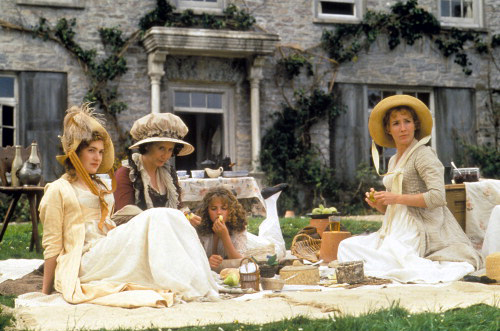 Emma insults Miss Bates. But she outdoes herself in Sense and Sensibility, in which she deflates her characters’ high expectations by abruptly canceling the picnic. The “party of pleasure,” Austen’s euphemism for a picnic, was intended at...
Emma insults Miss Bates. But she outdoes herself in Sense and Sensibility, in which she deflates her characters’ high expectations by abruptly canceling the picnic. The “party of pleasure,” Austen’s euphemism for a picnic, was intended at...
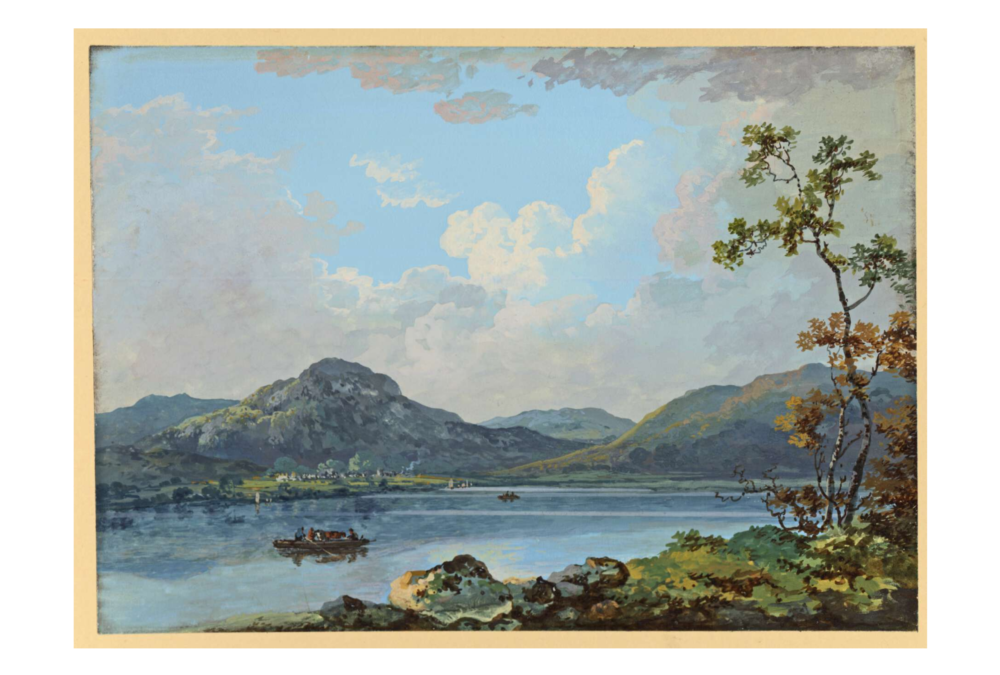 Wordsworth’s lines reveal the sudden beauty a picnicker might encounter, which triggers pleasure and spiritual ease at an evening picnic: Ah! That such beauty, varying in the light Of living nature, cannot be portrayed By words, nor by...
Wordsworth’s lines reveal the sudden beauty a picnicker might encounter, which triggers pleasure and spiritual ease at an evening picnic: Ah! That such beauty, varying in the light Of living nature, cannot be portrayed By words, nor by...
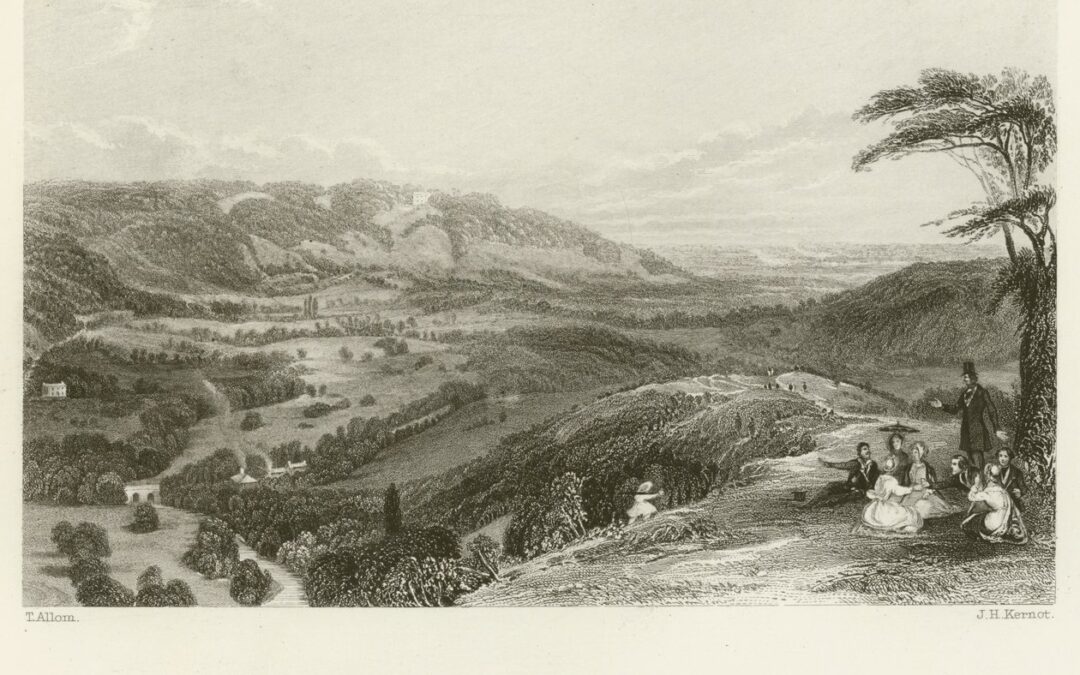 Austen’s Emma has two picnic episodes, one of which never happens * and the other a proper picnic at Box Hill. During strawberry season, Emma Woodhouse and her crowd gather in Knightley’s Donwell Abbey garden. Mrs. Elston’s enthusiastic plan for a...
Austen’s Emma has two picnic episodes, one of which never happens * and the other a proper picnic at Box Hill. During strawberry season, Emma Woodhouse and her crowd gather in Knightley’s Donwell Abbey garden. Mrs. Elston’s enthusiastic plan for a...
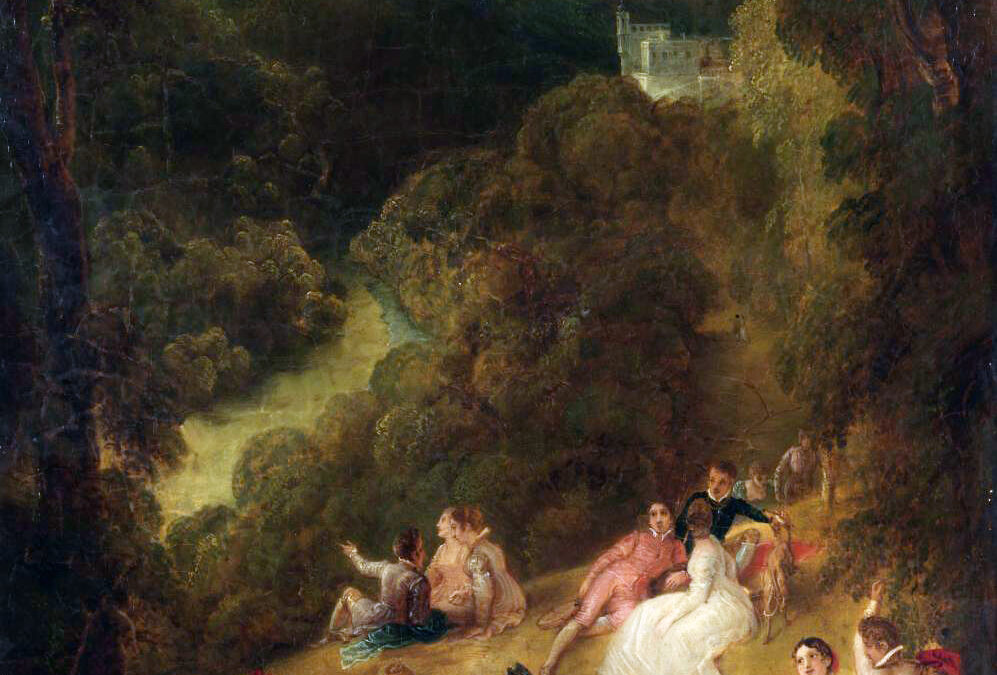 Thomas Stothard’s San Souci is a picnic in the style of the fête galante associated with Jean-Antoine Watteau. Couples dressed in 17th-century clothing enjoy their leisure in varying poses of elegant courting. The foreground includes a picnic cloth with food and...
Thomas Stothard’s San Souci is a picnic in the style of the fête galante associated with Jean-Antoine Watteau. Couples dressed in 17th-century clothing enjoy their leisure in varying poses of elegant courting. The foreground includes a picnic cloth with food and...
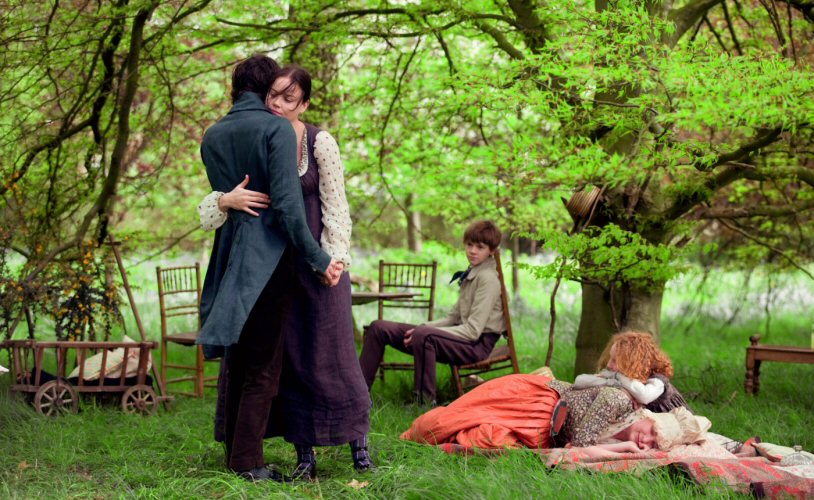 Keats uses the phrase “pic nic scandal” to suggest something silly, and he tosses it off as if it’s a common phrase, but it’s unique to him. Writing to his brother George and his wife Georgiana, he writes, “Perhaps as you were fond of...
Keats uses the phrase “pic nic scandal” to suggest something silly, and he tosses it off as if it’s a common phrase, but it’s unique to him. Writing to his brother George and his wife Georgiana, he writes, “Perhaps as you were fond of...
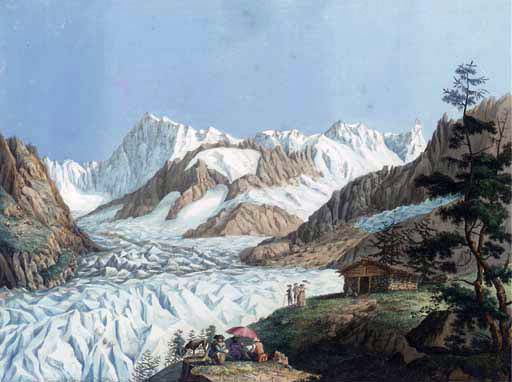 ” “The most desolate place in the world” where Mary Shelley thought she was overlooking the Mer de Glace, Sea of Ice, grinding into the Chamonix valley. Her descriptive phrase suggests that she and her traveling companions, Percy Shelley (her lover)...
” “The most desolate place in the world” where Mary Shelley thought she was overlooking the Mer de Glace, Sea of Ice, grinding into the Chamonix valley. Her descriptive phrase suggests that she and her traveling companions, Percy Shelley (her lover)...
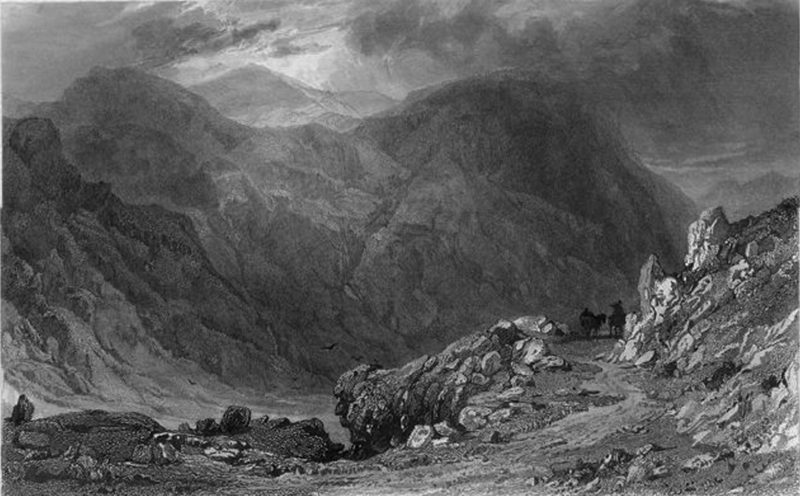 After John Wilson’s August picnic on Grasmere Island, Dorothy Wordsworth was in good spirits. Uncharacteristically effusively, she wrote to her dear friend Catherine Clarkson, “Nineteen of us were to have dined there, and were all caught in a thunder...
After John Wilson’s August picnic on Grasmere Island, Dorothy Wordsworth was in good spirits. Uncharacteristically effusively, she wrote to her dear friend Catherine Clarkson, “Nineteen of us were to have dined there, and were all caught in a thunder...
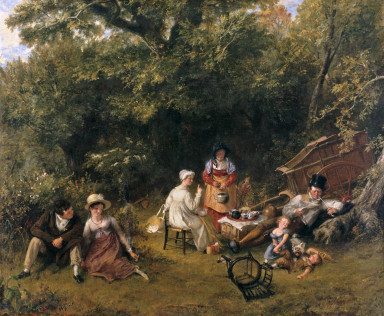 When Gypsying was exhibited at the Royal Academy, a reviewer carped that Leslie’s Londoners are insensitive Cockneys (a derogatory term) unable to appreciate the country. Presumably, only the upper classes know how to do it right. When Leslie used the term as a...
When Gypsying was exhibited at the Royal Academy, a reviewer carped that Leslie’s Londoners are insensitive Cockneys (a derogatory term) unable to appreciate the country. Presumably, only the upper classes know how to do it right. When Leslie used the term as a...
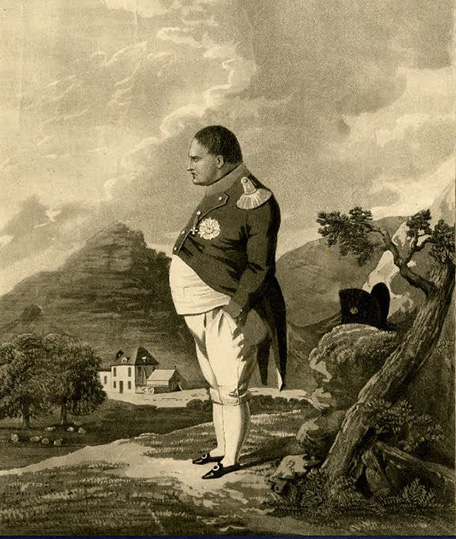 Five years into his six-year exile on St. Helena, Napoleon was pale, tired-looking, and fat, though his face showed no fatigue or illness. Still, after a ten-mile journey on horseback (on hilly terrain), he uncharacteristically stopped for a social visit at Mount...
Five years into his six-year exile on St. Helena, Napoleon was pale, tired-looking, and fat, though his face showed no fatigue or illness. Still, after a ten-mile journey on horseback (on hilly terrain), he uncharacteristically stopped for a social visit at Mount...











